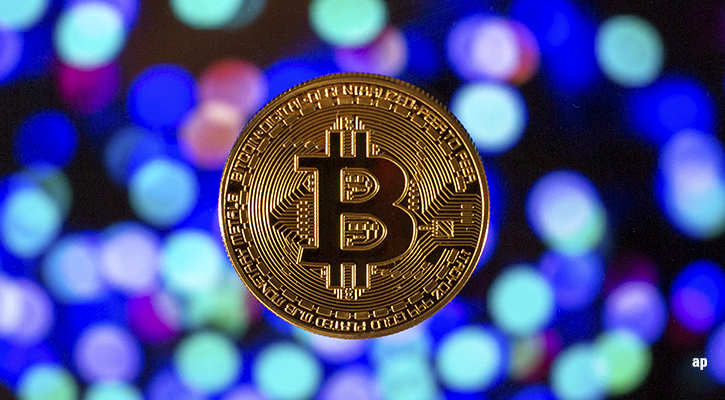
The bankruptcy of FTX, a cryptocurrency trading platform based in the Bahamas, has investors trembling. Will they now revise their positions in digital assets?
FTX's collapse undermined the industry's credibility among investors, regulators and the public, not least because the company's founder, 30-year-old Sam Bankman-Fried (SBF), was until recently considered a figurehead in decentralised finance.
What Happened to FTX?
Within a few weeks, however, the dream was shattered. It all started at the beginning of November when rumours began to circulate that FTX subsidiary Almeda Research, a quantitative trading company (that is, one that uses mathematical and statistical calculations to make bets on the markets), was in crisis.
"It appears that FTX may have leant client funds and assets (although there is no proof) to Alameda Research, which allegedly used them to place risky bets, something strictly prohibited in traditional finance," explains Mirva Antilla, Director of Digital Assets Research at WisdomTree.
"Both companies are private but, according to market estimates, 40% of Alameda Research's balance sheet could include FTT tokens (digital assets within a blockchain that confer a right to a specific entity) created by FTX , which have been used as collateral at the company".
The news sparked a barrage of requests to redeem and exit FTT tokens, including those from Binance, another cryptocurrency exchange, which held more than $500 million of them. Binance itself later signed a letter of intent with FTX to attempt a bailout, but the offer was withdrawn because Binance deemed the financial gap "too big".
"Based on on-chain (i.e. blockchain) activity, the industry has recently seen diversion from Alameda wallets to FTX," Antilla continues.
"It appears Alameda has lost money with its commercial operations and is unable to repay the funds and assets that FTX lent it. For its part, FTX would have a deficit of at least 8 billion dollars".
The Impact on Traditional Finance
The first impacts on traditional finance have already begun to show. As reported by ETF Stream, CoinShares, 21Shares and VanEck have suspended the exchange-traded products (ETPs) that specialised in FTX because market makers can no longer put a price on FTT tokens, which have themselves lost about 97% from their highs (source: Coinbase).
However, the consequences may not end here, because many were also invested in the trading platform, whose valuation at the end of January 2022 was $32.5 billion, including asset managers and pension funds.
According to Pitchbook data (Pitchbook is a company in the Morningstar family), the institutional investors who bet on FTX in recent years probabl number around eighty.
So, Who Invested in FTX?
Above all venture capital, hedge funds, business angels (individual investors who offer capital and knowledge to startups), but the list also includes management companies, including BlackRock, the largest asset manager in the world, which had joined October 2021 along with some 70 other investors, participating in a $420.7 million FTX financing deal.
The list also includes the Ontario Teacher's Pension Plan pension fund, responsible for managing pensions for school teachers in the Canadian province of Ontario, which sponsors the Government of Ontario and the local federation of teachers and is one of the largest in the world with $242.5 billion in assets under management. The fund invested $75 million in FTX International and FTX US in October 2021, and then invested another $20 million in the US business unit in January 2022, according to Pitchbook. However, it's thought any financial losses will have limited impact on the pension plan because "the investment represents less than 0.05% of total net assets".
Investors Seduced, and Then Abandoned?
Though the percentage invested by institutions is minimal, there is no doubt that they have been attracted by cryptocurrencies in recent years.
"Recent surveys show institutional investor interest in cryptocurrencies," explains Pitchbook reporter Jessica Hamlin.
"In the CFA Institute's 2022 Investor Confidence Survey, 94% of state/government pension plan sponsors said they currently invest in cryptocurrencies. Positive perceptions of digital assets among institutional investors grew by six percentage points from 2021 to 2022, according to responses to a Fidelity Digital Assets survey of more than 1,000 global institutional investors."
This saga is the latest in a series of negative events involving the world of digital currencies. In May, there was the bankruptcy of the Celsius Network platform and before that the collapse of TerraUSD, the cryptocurrency pegged to the value of the dollar. At that time, some digital currency ETPs had lost 100% of their value.
"The crash has forced institutional investors to reconsider their exposure to the asset," admits Hamlin.
"Notoriously risk-averse, pension plans and other institutional investors have approached cryptocurrencies timidly in recent years. Funds specialising in digital currencies have attracted these investors, promising high returns and minimal correlation with other assets. In short, a potential gold mine for pension funds looking for greater sources of income to cope with growing and increasingly elderly underwriters".
Will a New Regulatory Regime Emerge?
According to experts, the failure of FTX, as well as previous crashes, could generate outflows from specialised cryptocurrency tools. Another consequence could be greater attention in evaluating this type of asset class by institutional investors, along with requests for transparency and higher standards in accounting practices.
The FTX case once again shows how important regulation is. On 5 October 2022, the Council of the European Union approved the details of proposed regulations for cryptocurrencies.
The Markets in Crypto-Assets, or MiCA, provides, among other things, for the publication of a prospectus if the issuer intends to raise more than one million euros on the market.
Furthermore, according the proposal, service providers will have to obtain EU authorisation in order to operate. They will be subject to capital and insurance requirements and, ultimately, they will need to disclose to investors the potential risk of losses. Stablecoins, whose value is pegged to another asset (such as the dollar), will have to meet certain reserve requirements and transaction volume limits.
The new regulation has not yet been granted full approval and is expected to become binding in 2024. In the meantime, the cryptocurrency market remains largely unregulated and lacks supervisory or rescue frameworks for extreme situations.
Will regulators be able to intervene in time to prevent investors from completely losing faith in cryptocurrencies? The question does not currently have an answer. What is certain, however, is that FTX customers can now withdraw their money. Those who have Bitcoin or other cryptocurrencies have suffered new heavy discounts. Since the beginning of the year, Bitcoin has lost almost 62% against the euro, Ethereum more than 64% and Solana, which was more directly impacted by the FTX case, has lost more than 55% of its value.










:quality(80)/cloudfront-us-east-1.images.arcpublishing.com/morningstar/MNPB4CP64NCNLA3MTELE3ISLRY.jpg)

















